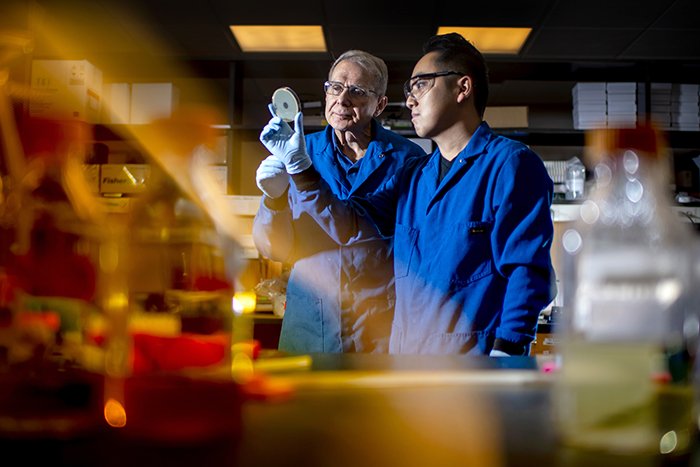As the fight against antibiotic-resistant superbugs continues to get more dire, scientists may have found a new weapon for tackling some of the worst superbugs we know of: a new antibiotic called darobactin, which is able to take on gram-negative bac
As the fight against antibiotic-resistant superbugs continues to get more dire, scientists may have found a new weapon for tackling some of the worst superbugs we know of: a new antibiotic called darobactin, which is able to take on gram-negative bacteria.
Darobactin took some finding though, across two years of research – the antibiotic compound was discovered in Photorhabdus bacteria, lurking inside the gut of tiny parasitic worms known as nematodes.
The hope is that darobactin can be developed into something suitable for humans – the first time such a leap would have been made from an animal microbiome – and give us new options for countering bugs that have developed antibiotic resistance.
(Matthew Modoono/Northeastern University)
What makes gram-negative bacteria so particularly stubborn is the outer membrane that these cells develop, which acts as an extra barrier against any kind of attack. Darobactin is special in that it breaks through this barrier by interfering with the BamA protein that controls access to the outer membrane.
"Darobactin binds to that [BamA] protein and jams it, so it cannot open anymore," says molecular microbiologist Kim Lewis, from Northeastern University in Massachusetts. "The bacteria cannot build a proper cell envelope, and that causes death."
In lab experiments, the new antibiotic was able to cure mice of dangerous Escherichia coli and Klebsiella pneumoniae infections, without any…



